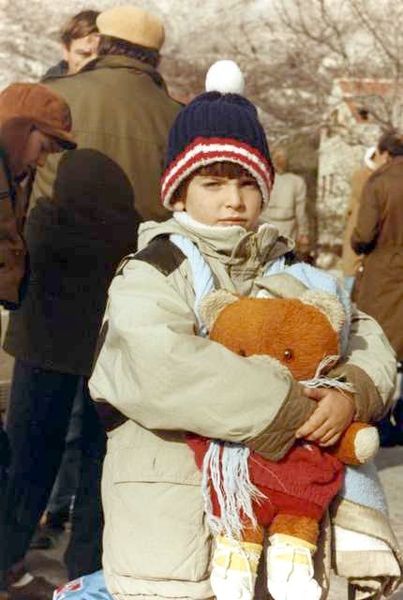What a funny week. Maybe you had one like it—hard to recall, super busy, yet hard to explain why.
Partly it was filled with summery activities like taking grandkids to swim lessons, watering the garden, and grilling with our neighbors. Partly it was devoted to working with Hank as he readies our newest course The Rudiments of Music Theory for its official unveiling this weekend. Hank teaches this course in sixteen short video lectures and, like everything Hank does, it is clear, concise, and very useful for both children (from about age 9) and adults, with or without previous musical knowledge.
Another part of this past week was given over to reading, something we all yearn for more time to do. Primarily I tend to choose titles that are gut-wrenching accounts of human disasters of the 20th century. Right now, the titles are focusing on The Homeland Wars of former Yugoslavia (Croatian War of Independence, 1991-1995), a series of awful events that resided primarily as headlines or gory images on TV for most Americans.

While the world debated how to be involved, modern cities, bucolic villages, and pristine Renaissance towns were shelled and devastated. Atrocious acts of “ethnic cleansing” took place before everyone’s eyes, with a vicious randomness that can barely be fathomed.
In fact, that is one of the biggest takeaways of The Homeland Wars. These invasions, attacks, and horrors seemed so possible to extinguish, if only the powerful, amorphous “West” would have done something. What that “something” could have have been has spawned much prose and bitterness.
The book that really got to me this week is called Girl at War by Sara Novic. Technically fiction, the narrative comprises composite characters who move through real events. But the reader will barely perceive the work as fiction, since the author was a child in Zagreb when the wars broke out. She witnessed many of the situations in the book and the rest affected her family, friends, and Croatia at large. Like her main character, she later built a new life in the US, yet struggled to reconcile the past with her present. I could not put it down.
Still I, like most of you, have the luxury of finishing a book like this and leaving the disaster behind. The awfulness of what is recounted stays neatly within the pages while I go to the dry cleaners. Or decide between grocery stores.
Or, on Tuesday, decide which branch library to visit for something lighter to read. Actually I did need something suitable for the road, as we were heading to New York for our penultimate summer conference: the Great Homeschool Convention that begins today in Rochester.
After what surely will be a joyful three days spent with our students, families, and colleagues, we intend to drive on Sunday to see Niagara Falls—a first for me and a place I never expected to see, for some reason.
Still, the launch for this lovely trip was jagged. Getting out of the front door for any trip is a struggle for me, but this one had a different twist: our kitchen sink clogged up completely the evening before we departed, right after we put dinner on the table (at least it was after).
Of course I tried the usual things, including a late-night dash to Walmart to seek some kind of magical tool to fix the problem. But those things only made it worse. So Wednesday morning, instead of hopping in the car at sunrise, we waited on a plumber.
There was, however, a silver lining. As it turns out, one of the two plumbers, the “boss” of the pair, came from homeschool family of five brothers, five sisters. He was the youngest sibling. Now, he and his wife have three little ones for whom they are laying the groundwork to homeschool.
So there I was, surrounded by the plumbing snake and kitchen mess (you know what happens in these situations), watching our travel time tick away and reeling from absorbing the costs of the problem, but still having a good time. This fellow enjoyed reminiscing about the curricula his mom had used and retelling some of the funny moments of their lively homeschool. I caught him up on curricular movements that have sprouted since his homeschooling days and shared what Hank and I do at Professor Carol. The other plumber had no idea what we were talking about, and that made it all the funnier.
The real truth is simple: the problems most of us experience are merely inconveniences. Worrisome, exasperating, expensive, yes. But inconveniences when set against what a little girl from Zagreb experienced when her parents were ambushed along the highway, forced from their car, and summarily executed along with dozens of other regular people whose only crime was driving that morning from one city to another.
Reading accounts of wars and disasters puts a pretty fine point on things, does it not? That may be one reason I am drawn to such books. They remind me that most of us live a vastly privileged life where we, by and large, are safe, well fed, and well sheltered. Exceptions abound, I know. Awful disasters can and do befall us here in the US, made even more awful because they are so incongruous with the general safety we Americans historically have enjoyed. But like a book, generally we are able to close the cover on these events and continue along our own select path.
We need regularly to be reminded of this. Reading history brings vivid reminders. So, too, does travel. And so too does meeting with people who have suffered from such cruelties. We are chastened. Our bubbling discontents are quelled. We receive a nudge to fall to our knees in gratitude.



